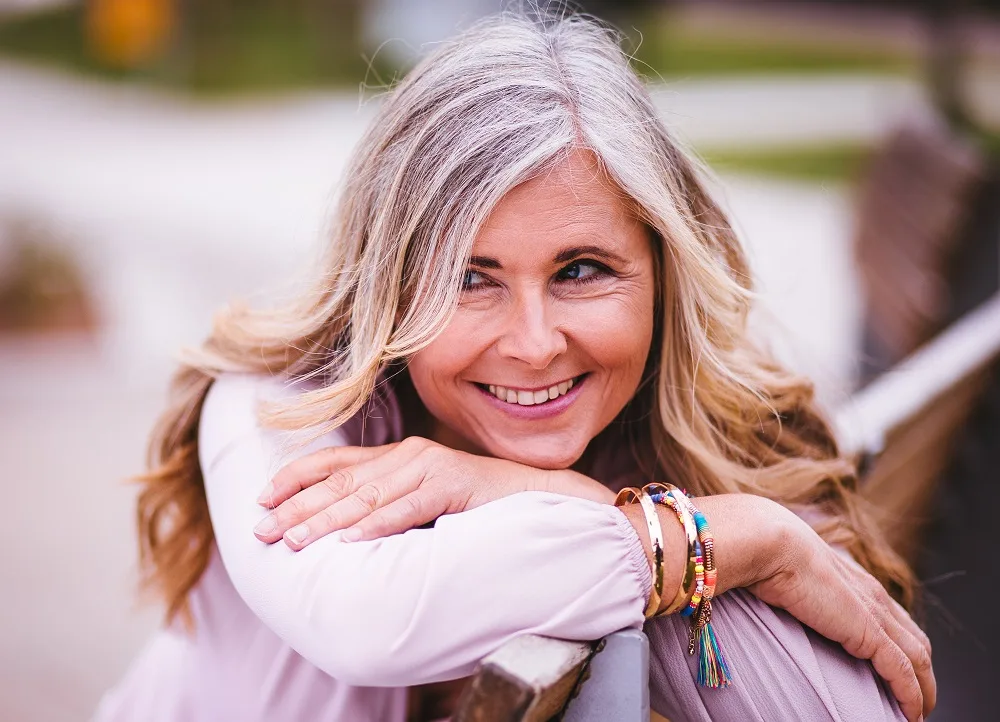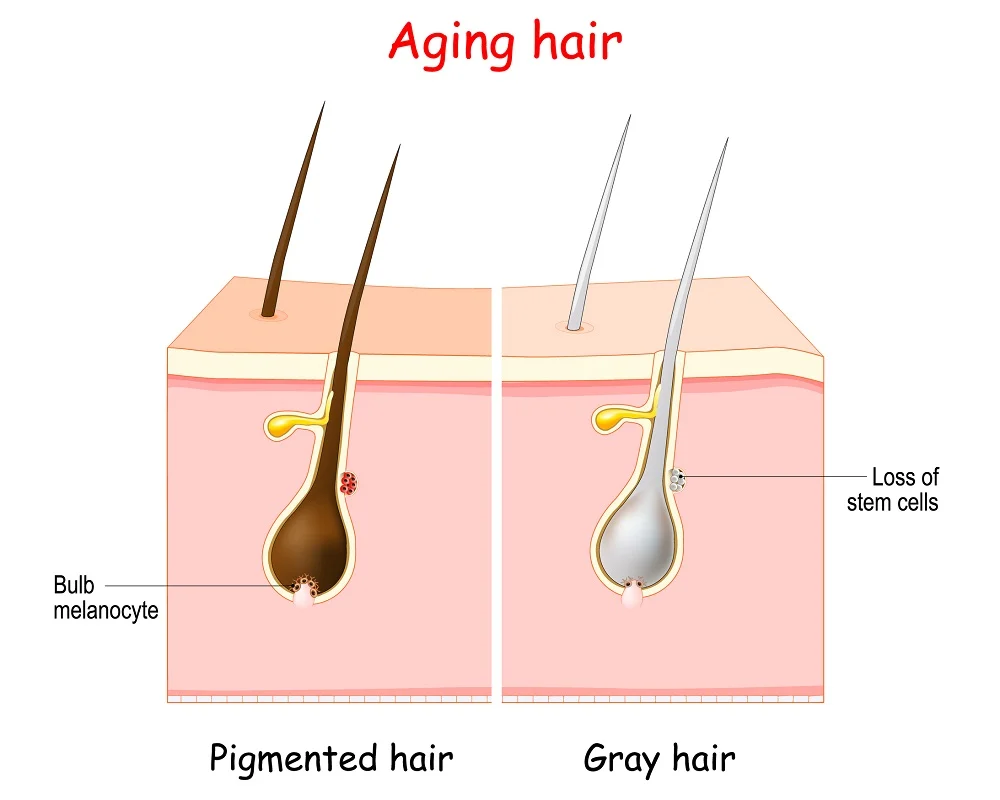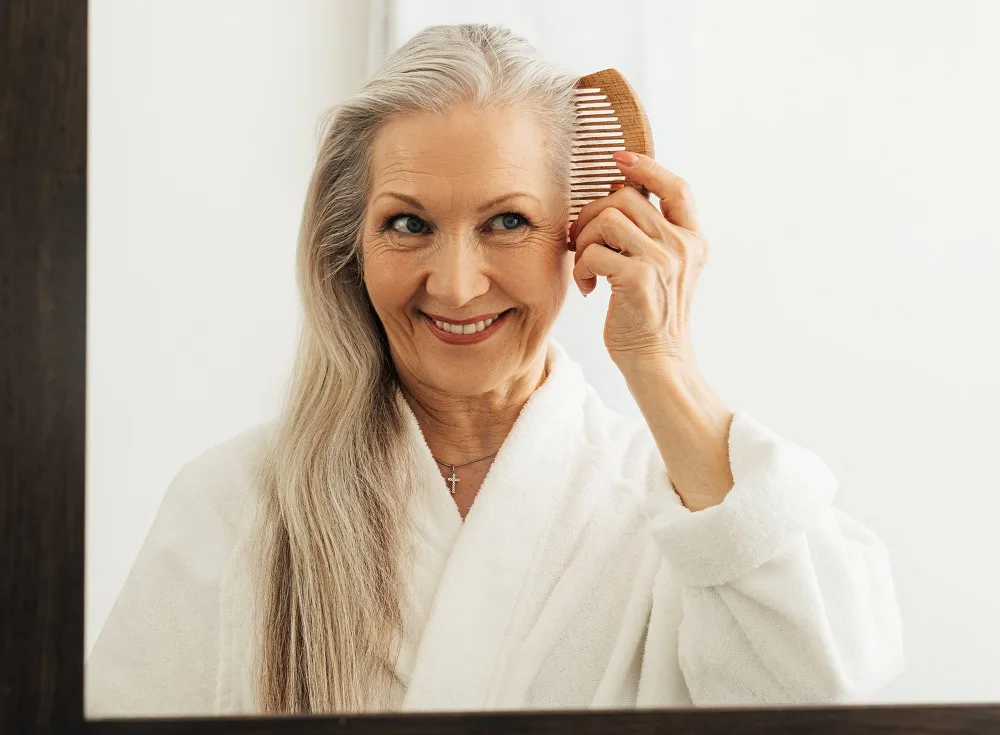Everything changes when we age, including our hair. If you have blonde hair, you may be curious to know whether your hair will turn grey or white as you get older.
Natural hair color changes can bring up lots of feelings (both good and bad), so it is perfectly normal to have questions.
However, the answer to whether blondes turn grey or white with age isn’t straightforward. To fully understand this transition, read the article till the end.
Does Blonde Hair Turn Grey or White First?

Blondes, like others, go grey first and then white due to reduced melanin production in hair follicles with age. However, whether you notice white or grey depends on how dark your blonde shade is.
People with lighter shades of blonde hair might notice white hair instead of grey when they age but darker blondes might notice graying first.
Why Does Blonde Hair Turn White with Age?

Despite the phrase we use to describe it, our hair does not “turn” any color – grey or white. Instead, as you age, your hair follicles produce new hairs with less pigment. An existing strand of hair cannot change color naturally – white hairs are new hairs on your head.
There are a few pigments that determine your hair color– primarily two types of melanin. Eumelanin is largely responsible for darker hair colors, while pheomelanin pigment produces hair with lighter colors.
Blondes have more pheomelanin than eumelanin. This is why they have lighter hair than people with darker hair colors.
When the body ages, stem cells responsible for coloring your hair begin to wear out. Eventually, hair grows without any pigmentation at all, leading to white hair.
So, the difference between grey and white hair is grey hair has more melanin than white hair. When melanin is reduced with age hair turns grey first. It could stop there or continue to lighten into white if you do not color it with dye.
If your hair is light blonde, you might not notice when it starts to lose its color until the grey hair gradually turns white because of less color difference.
If you have a darker, nuttier shade of blonde mixed with some brown, you may find that your hair turns grey as you age. It could stop there or continue to lighten into white if you do not color it with dye.
Does Blonde Hair Turn Grey or White Faster?

Yes, blondes naturally have lower melanin levels in their hair, so they face greying or whitening earlier compared to those with darker hair. However, the change to gray is less noticeable initially compared to darker hair colors.
This is because blonde hair already has a lower concentration of melanin, so the contrast between the original hair color and the gray is less intense.
As a result, we notice the process only when the hair gets too white.
Melanin is not the only thing your hair loses when it changes color. Just as each hair follicle loses pigmentation, it also loses sebum, a natural oil that keeps your hair hydrated. The effect? You may feel like your hair is coarse or wiry.
For people whose hair follicles used to have a high sebum production, this transition may be more noticeable than the color change.
Once most of your hair is white, hair care might need to change. Consider finding hair products that moisturize and hydrate your hair. Speak to your stylist for more ideas.
So, like all other hair colors, blonde hair turns grey and then white. Light blondes can expect to stay blonde for longer but gradually fade into white. Darker shades might see their hair going grey first.
FAQs
If you are still curious about the aging process for blonde hair, here are some frequently asked questions and answers.
In general, blondes go gray more slowly. That might be because as blonde hair loses pigmentation, it is less noticeable than when a brunette starts going grey.
Most people start noticing their first grey or white hair in their 30s.
There is some research to indicate that there is a relationship between greying and stress. Stress can shut down the stem cells that produce melanin, which makes hair appear grey or white.
